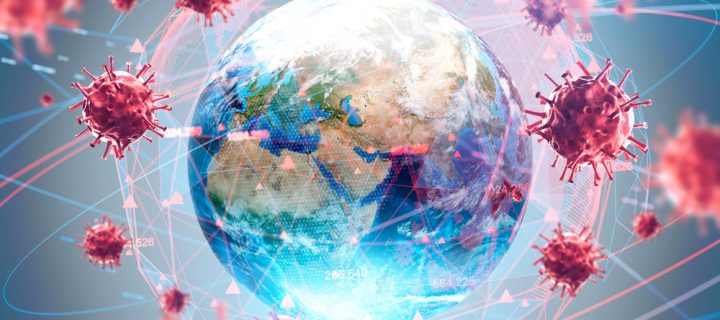While some wreak havoc in humans, more keep us alive and are so important we couldn’t live without them.
It really can seem as though the world would be a much better place without viruses. At the best of times, they inhabit us but don’t cause any real problems. In moderation they have us home in bed with a bad headache, stifling sniffles and days of lost work. At their worst, these guys kill us off. Do we really need this kind of disruption and potential horror on a daily basis?
As difficult as it may be to accept, viruses are unfortunately integral to life on Earth. While it may be tempting to wish we could vacuum them up-or at least some of them- and throw the bag away into outer space, this would be problematic. As the epidemiologist Tony Goldberg from the University of Wisconsin-Madison told BBC.com,
“If all viruses suddenly disappeared, the world would be a wonderful place for about a day and a half, and then we’d all die – that’s the bottom line. All the essential things they do in the world far outweigh the bad things.”
So, what good do viruses really do? First, let’s consider how abundant, or actually overabundant they are. According to National Geographic, there are more viruses in the universe than there are stars in the sky. To be more exact, some scientists say there are over a quadrillion quadrillion viruses right now on Earth.
Related: What Can Convalescent Plasma Do For You?
Thankfully, most of these are not pathogens that will jump into humans and cause us to be sick. But they’re there pretty much everywhere. And this is for good reason. These tiny things help hold our ecosystems together.
Here’s an example. Viruses called phages are predators. They gobble up bacteria, and act as key regulators of bacteria in the oceans. Some of the bacteria in the oceans, such as plankton, produce a very large amount of the oxygen we breathe on Earth. In fact, it is estimated that somewhere between 50% and 80% of all our planet’s oxygen is produced in the ocean. By killing off certain types of bacteria present under the sea, viruses allow for other, oxygen-producing bacteria to get enough to eat, and flourish.
In this way, viruses help maintain a much-needed balance in the ocean’s waters and in our air. In doing so, they keep us alive.
Viruses are also said to do other things. This includes helping cows digest their food, and protecting animals from other pathogens. The herpes virus, for example, makes mice less susceptible to bacterial infections including the bubonic plague. Earth is a weird place! So while some viruses, like that causing COVID-19, are our own living nightmare, bazillions of others are actually keeping us alive and well, each day. It’s all about balance and maintaining it. While the virus causing the pandemic unwelcome, others are highly needed.
Feel like contemplating the origins of life on Earth and where viruses come from? Click here to read more.
photo credits: ImageFlow/Shutterstock.com












